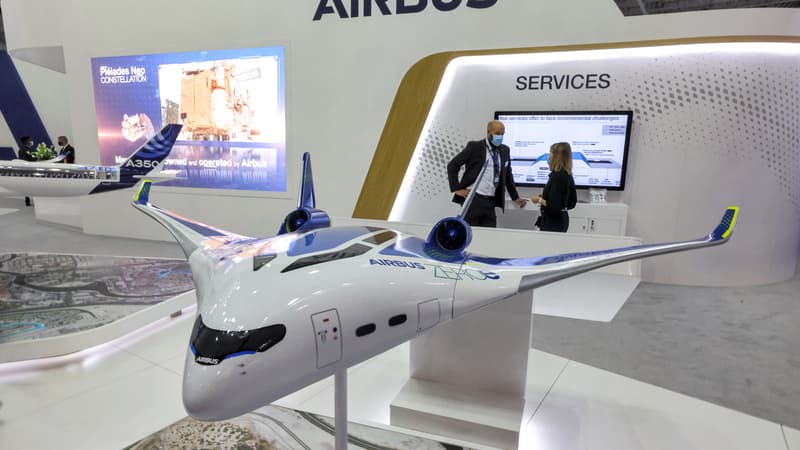Decarbonise air transport in a world that could double the number of planes in circulation in the next 20 years. This is the immense challenge that awaits the major aircraft manufacturers currently gathered at the Paris Air Show.
For Airbus and several aeronautical start-ups, one of the solutions represents a revolution: the hydrogen engine.
In Le Bourget there was a first public presentation of DragonFly, the dragonfly, a propeller plane designed by the French start-up Blue Spirit Aero. Equipped with a hydrogen fuel cell, this passenger aircraft should be put into service in 2026.
For larger carriers and long haul carriers, it should be a bit longer. If they ever see the light of day.
Because for now, opinions on the subject are far from unanimous. On the Dassault side, it is estimated that hydrogen is an illusion in the world of air.
“I don’t believe in hydrogen because hydrogen is very dangerous,” Dassault Aviation chief Eric Trappier told BFM Business on Tuesday. We study [les avions à hydrogène] and we came to the conclusion that it was not possible in the future of the decade(s)”.
“We need a plan B”
Like the head of Safran who is skeptical on the subject, the general director of the French aeronautical group even considers that it is a waste of time to invest in this investigation.
Apart from Airbus, which unveiled models of its ZEROe concept in 2022, a jumbo jet equipped with a hydrogen fuel cell that the group is working on with ArianeGroupe and an Engie subsidiary, Boeing is not closing the door on the technology.
A hydrogen-powered plane could see the light of day in 2035, estimated Jean-Marc Fron, general manager of Boeing in France at BFM Business. But it will be small, that is, 15 or 20 passengers, and it will only be confined to a small segment of the market.
Reluctance not shared by Agustín de Romanet, who also mentioned the subject on the set of BFMTV. The ADP CEO believes that the future of civil aviation will involve a variety of solutions ranging from electric motors, sustainable fuels (especially those made from frying oil), synthetic fuels such as e-fuel or hydrogen.
If for the man who runs the largest airport company on the planet, the long haul should lean towards sustainable fuel and the short haul towards electricity, the medium haul could be that of hydrogen in the coming decades.
Source: BFM TV


